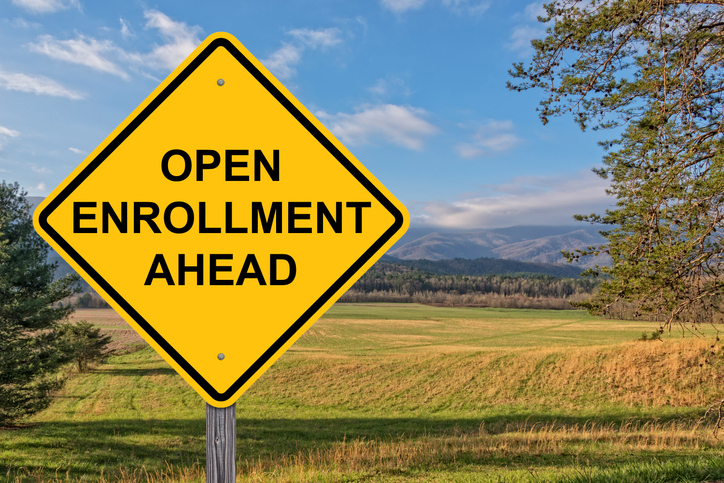A federal judge said a North Carolina man advocating a Paleolithic or “caveman” diet on his blog is “unlikely to succeed” in his claim that the North Carolina Board of Dietetics/Nutrition has violated his freedom of speech.
Forced Licensing for Advice
In an order dated Aug. 7, U.S. District Court Judge Max Coburn denied Steve Cooksey’s request for a preliminary injunction against the board, which Cooksey claims is stopping him from giving nutritional advice on his blog, Diabetes-Warrior.net.
Three years ago Cooksey started a blog about his success controlling his diabetes through a diet low in carbs and rich in pasture-raised meats, animal fat, and vegetables. The blog attracted thousands of followers, led dozens of other diabetics to try Cooksey’s diet, and prompted questions from readers, which he began to answer in a Dear-Abby-style advice column. Soon he started offering a “Diabetes Support Package,” a life-coaching service for people trying to adopt his diet and lifestyle, for a fee.
But his progress came to a screeching halt in January, when the state nutrition board caught wind of his website and told him it was a crime to provide nutritional advice or “counseling” without a license.
The board’s director went through Cooksey’s blog with a red pen, underlining language she said was illegal, and strongly suggested he remove it. If Cooksey failed to comply, the director said, he could be fined up to $10,000 and spend as many as 120 days in jail. So he removed it.
State law requires individuals to obtain a professional license before making such assessments, so Cooksey deleted anything that looked like advice about what people should be eating. He argues he has been censored, however, which violates his freedom of speech.
Judge Coburn disagreed.
Disagreement Over Harm
The nutrition board’s lawyers argued in a July 27 memo there was no need for an injunction against the board because the board never made a formal or final decision about the legality of Cooksey’s speech. The board’s director had merely “noted areas of concern” in Cooksey’s blog, “invited further discussion,” and “asked” him to make the recommended changes to his website.
The board argued Cooksey had suffered no injury and had no grounds on which to sue. The board’s lawyers asked the judge to dismiss the case. In Coburn’s written order denying Cooksey’s request for a preliminary injunction, he appeared to accept the board’s arguments.
‘An Absurd Postion’
The extent of Cooksey’s injury is “questionable,” Coburn said, because the board never took “formal action” against him and he “volunteered” to remove the “problematic” parts of his website.
“There is no evidence that plaintiff protested further or was otherwise ordered to comply,” he wrote.
“We think, frankly, that is an absurd position,” said Paul Sherman, one of Cooksey’s lawyers from the Institute for Justice, a libertarian public interest law firm.
“When the executive director of a government agency goes through your writing with a red pen and tells you on a line-by-line basis that you’ve violated the law, that is a ripe controversy,” he said. “That is a controversy the court can hear.”
In a memo dated Aug. 10, the institute’s lawyers responded to Coburn’s order.
“Stopping speaking in response to a formal government investigation is the very definition of having one’s speech ‘chilled,’ and that is a First Amendment injury,” they wrote. “Plaintiff Cooksey did not stop speaking voluntarily; his silence has been coerced by monitoring and the credible threat of sanctions.”
First Amendment vs. Licensing
The board also argued the First Amendment doesn’t apply to “spoken or written advice” the government decides is subject to occupational licensing.
“It’s a pretty extraordinary claim, a claim that we do not believe is supported by U.S. Supreme Court precedent,” Sherman said.
The crux of the case, the board wrote, was whether North Carolina has the authority to license occupations to “safeguard the public health and safety.” Their lawyers argued Cooksey’s “target audience is a uniquely vulnerable population that suffers from the chronic and life-threatening condition of diabetes and often struggles to control blood sugar levels,” and said his advice could have “potentially serious health implications.”
Although Coburn agreed, he noted Cooksey “remains free to advocate his nutritional beliefs through other avenues: he may associate himself with a licensed nutritionist; become a licensed nutritionist himself; or sell or endorse a line of nutritional supplements or products which would allow him to legally assert nutritional claims.”
Right to Give Advice?
Cooksey’s lawyers responded that the “case cannot be dismissed as though it were about occupational conduct such as performing heart transplants without a license and not about ordinary advice that laypeople exchange every day.” As it stands, they argue, the North Carolina law violates the First Amendment of the U.S. Constitution by preventing ordinary people from giving advice about nutrition.
“It does not matter whether the advice is for free or compensated,” Cooksey’s lawyers wrote. “It does not matter whether the advice is one-time or ongoing. It does not matter whether the advice is published or in private. It does not matter whether the advice is between friends or strangers.”
Sherman said the Institute for Justice looks forward to taking Cooksey’s case to the Court of Appeals, and the U.S. Supreme Court, if need be.



